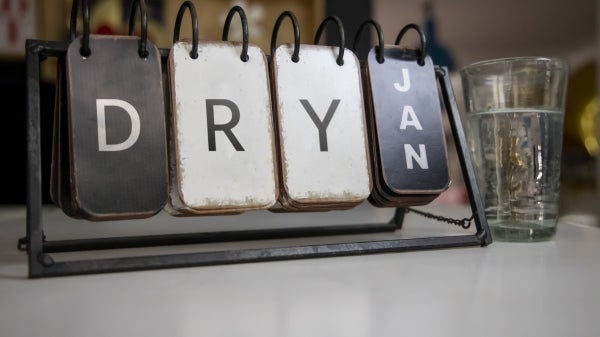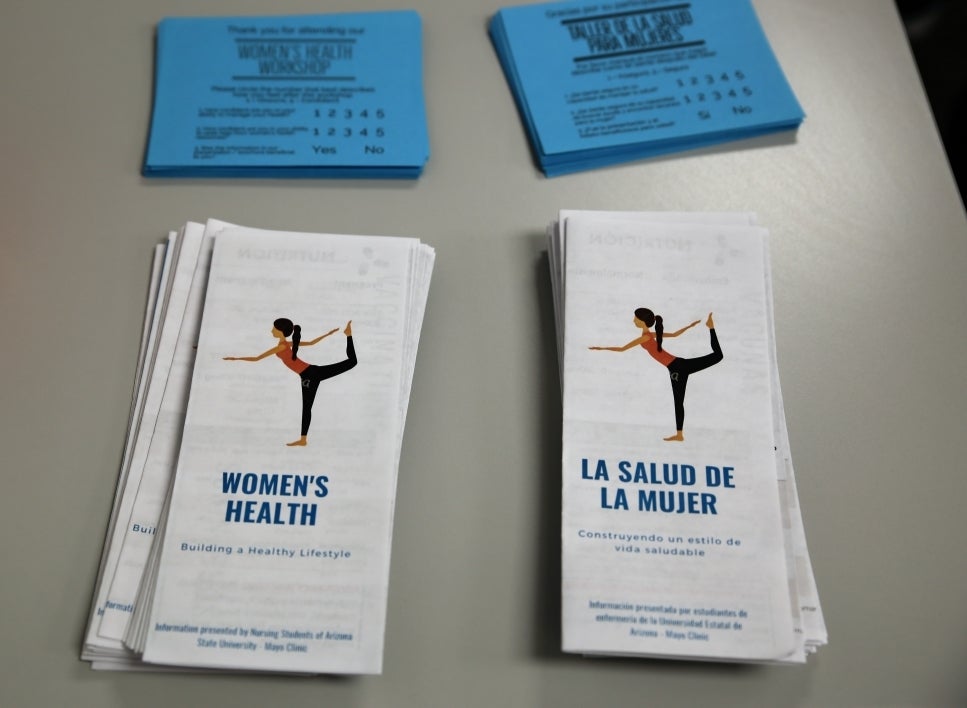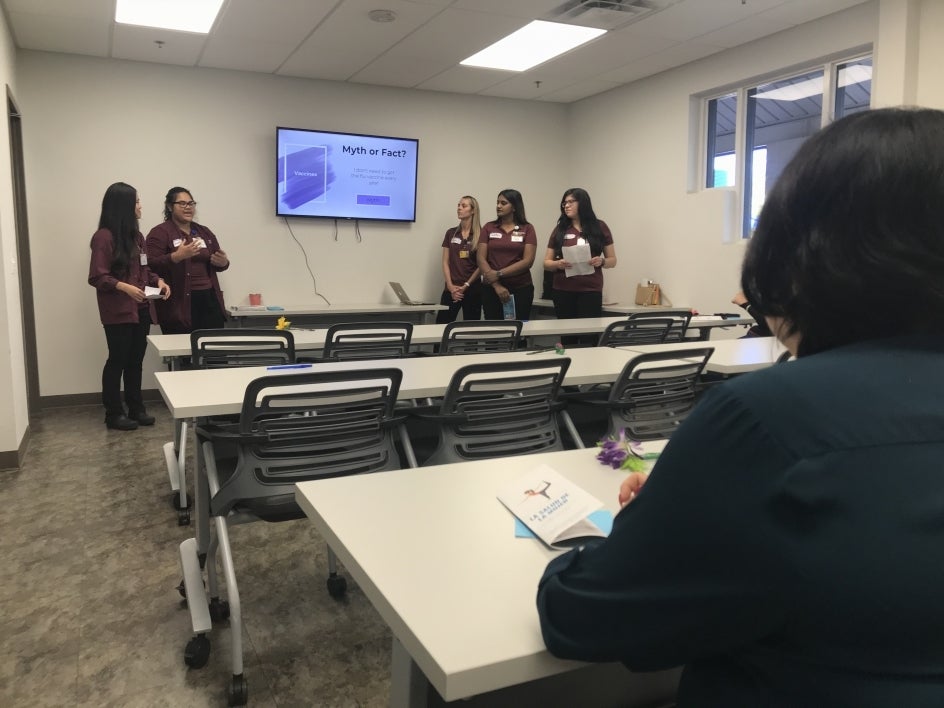Edson College nursing students deliver bilingual health workshop

Edson College Nursing seniors (left to right) Andrea Patiño Coronado, Shian Tiare-Fiame and Jasmine Cura answer questions after a women's health workshop at St. Vincent de Paul in Phoenix.
Nearly a year’s worth of work led up to a single event for a group of five Arizona State University Edson College of Nursing and Health Innovation students in the Mayo Clinic nursing cohort.
That event? A bilingual women’s health workshop for patients at St. Vincent de Paul in Phoenix.
After introducing themselves, the future nurses jumped into their presentation by testing their audience’s knowledge with a few fact or myth questions. And perhaps as a good sign of what was to come, it spurred participation.
They asked about the flu shot and whether or not you needed to get it every year. The answer, for the vast majority of people, is yes.
The participants weren’t so sure though, and one woman was even little leery of the vaccine altogether.
“I got the flu shot and felt sick after,” she said. “Can you get the flu from the shot?”
Without missing a beat, Shian Fiame probed a little further into the symptoms the woman experienced and then explained that no, you can’t get the flu from the vaccine. However, you can have side effects that mimic flu-like symptoms and in rare cases have an allergic reaction.
It was obvious to everyone in the room these students were well prepared and knowledgeable.
“I thought they did a great job,” said one participant, who did not want to share her name.
Their preparation began last fall when they enrolled in an upper-division course focused on interprofessional education and collaboration.
Part of the class requirement is to create a community-facing intervention. The group was then assigned a community partner to work with. For this project, it was St. Vincent de Paul.
“We’ve been working with them since last semester and part of that was just understanding more about the population that they serve and the resources and services they offer,” nursing student Jasmine Cura said.
To gain that insight, the students interviewed the director of the medical clinic as well as the director of the Center for Family Wellness, which offers holistic education programs focusing on prevention and managing chronic disease.
They learned that St. Vincent’s serves vulnerable populations from all backgrounds and faiths but is not able to meet everyone’s needs all the time.
“When we understood the gaps in the care that was present here we took that and turned to our textbooks and the research experience ASU has provided us and we formulated an intervention plan and that’s how we came up with the women’s health workshop,” Cura said.
Topics covered included:
• Vaccines.
• Body image.
• Depression.
• Menopause.
• Sleep.
“We also talked about pregnancy health and the nutrients and vitamins women need throughout that time. We then covered female-specific screenings and their importance,” nursing student Melita Saldanha said.
One thing that came into focus early-on was the need to provide this workshop in Spanish as well as English because a majority of the patients St. Vincent’s serves are Spanish speakers.
“In order to really tailor our intervention appropriately, we wanted to make sure we could speak to them in their native language. Since one of our cohort members is bilingual we wanted to use her skills so everyone who attended could get the most out of the workshop,” Cura said.
Not only was the workshop delivered in both languages but the supporting materials, including a pamphlet that participants could take home and a survey, were printed in English and Spanish.
With their content intact and a plan to deliver it, they needed to start recruiting women to attend the workshop. Again they turned to their community partner for guidance and best practices.
“They were very receptive to taking my feedback as far as how to engage the participants," said Elva Hooker, director of the Center for Family Wellness at St. Vincent de Paul. "Anytime we do recruitment for any of our programs, we are in direct contact, so either in-person or engaging them over the phone. The students were open to coming in and being able to offer their time to get these phone calls done and get the participants scheduled for their workshop.”
It was such a mutually beneficial collaboration that Hooker said they’d love to build on this partnership and do more workshops with Edson College students in the future.
The feeling was mutual. Through this process, each of the nursing students, who are graduating in May, said they gained valuable experience and reaffirmed the importance of taking their practice outside of the clinical setting.
“We are really dedicated to supporting and caring for other people — and I think that extends beyond the bedside experience," Cura said. "As advocates for health, we should be nurses who reach out to the community. We want to be able to walk into the spaces they’re familiar with and provide that education so it’s easier for them to feel comfortable and empowered as patients.”
More Health and medicine

ASU teams up with Maricopa County to address local life expectancy gap
Arizona State University’s College of Health Solutions is partnering with the Maricopa County Board of Supervisors to address a…

ASU professor named Rural Health Fellow
If you live in a major city, chances are you don’t spend much time thinking about what happens in smaller towns and rural areas.…

The rise of NoLo: Many young people opting to reduce alcohol consumption
This month, the U.S. surgeon general released a new advisory on the link between alcohol and cancer risk.The advisory includes a…


